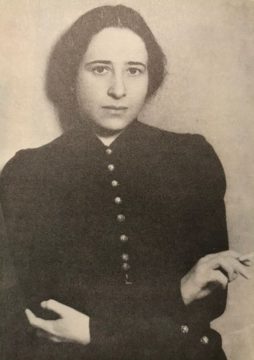Michael Weinman at Hedgehog Review:
 What is the matter with theory? More specifically, what does a distinctively modern approach to theorizing have to do with the prevalence of the kind of conspiracist thinking that thrives in our era of post-truth politics? To find answers to that question, political and cultural analysts have recently returned to the work of Hannah Arendt—and for good reason. Despite her training as a philosopher in her native Germany, the brilliant Jewish émigré thinker (1906–75) was not only not a theorist but even something of an anti-theorist, a practitioner of exercises of political thinking that were never theoretical in the usual sense. Ranging from her magisterial Origins of Totalitarianism and The Human Condition to her many essays, reviews, and works of analytical reportage (notably in Eichmann in Jerusalem), her oeuvre might best be characterized as a form of praxis, of thought in action. Grounded in the common world, this form of political thinking aims to support continued and active engagement in that world.
What is the matter with theory? More specifically, what does a distinctively modern approach to theorizing have to do with the prevalence of the kind of conspiracist thinking that thrives in our era of post-truth politics? To find answers to that question, political and cultural analysts have recently returned to the work of Hannah Arendt—and for good reason. Despite her training as a philosopher in her native Germany, the brilliant Jewish émigré thinker (1906–75) was not only not a theorist but even something of an anti-theorist, a practitioner of exercises of political thinking that were never theoretical in the usual sense. Ranging from her magisterial Origins of Totalitarianism and The Human Condition to her many essays, reviews, and works of analytical reportage (notably in Eichmann in Jerusalem), her oeuvre might best be characterized as a form of praxis, of thought in action. Grounded in the common world, this form of political thinking aims to support continued and active engagement in that world.
more here.
